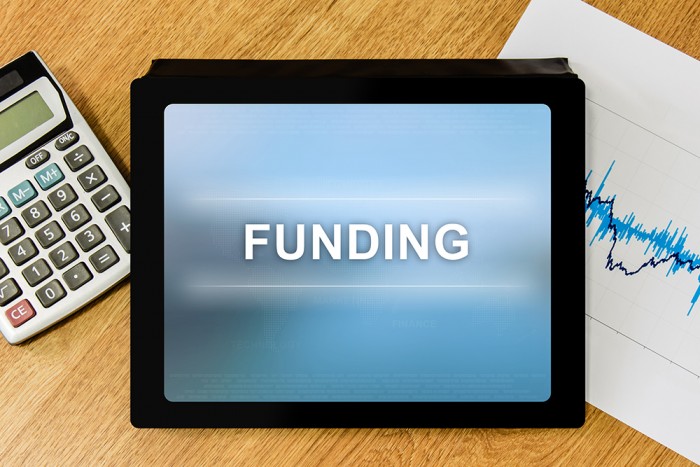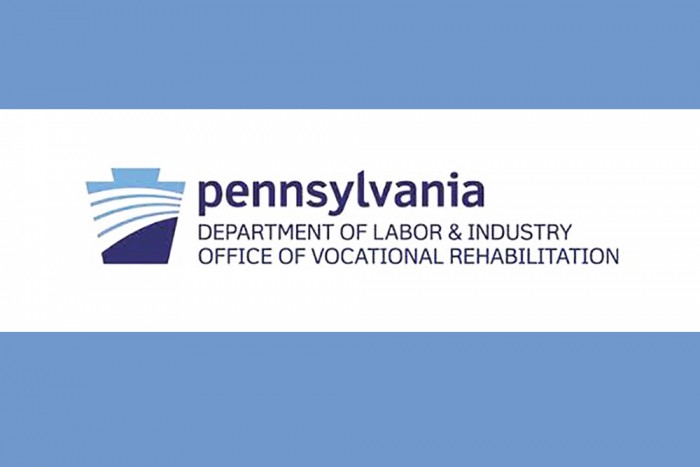grant
PADDC Announces the Golden Opportunity Grants Program
You know when there is an unexpected event or thing that suddenly happens, and the newly revealed situation gives you the perfect chance to influence or create change? Learn more about the PA Developmental Disabilities Council (PADCC) grants here.
With $14 Million Federal Grant, Wolf Administration to Support More People With Disabilities in Competitive, Integrated Employment
Message from the Department of Human Services (DHS):
Harrisburg, PA — Department of Labor & Industry (L&I) Secretary Jennifer Berrier and Department of Human Services (DHS) Acting Secretary Meg Snead today announced the Wolf Administration’s goal of using a $14 million federal grant to help Pennsylvanians with disabilities earning subminimum wage transition to competitive, integrated employment.
“Individuals with disabilities contribute their valuable skills, talents, time, energy and perspectives to Pennsylvania’s dynamic economy every day in professions and industries as diverse as our population. They deserve the same protections as all other workers, including the right to earn at least minimum wage for their work,” Secretary Berrier said. “The Wolf Administration will use this funding to help individuals with disabilities and their families learn about and take advantage of opportunities in competitive, integrated employment. There can and should be a role for everyone who wants to and is able to work, and we are grateful to those employers who have already committed to providing competitive, integrated employment.”
Pennsylvania is one of 14 states to receive grant awards from the federal Department of Education for the Subminimum Wage to Competitive Integrated Employment (SWTCIE) demonstration project. L&I’s Office of Vocational Rehabilitation (OVR) and DHS’s Office of Developmental Programs (ODP) will use the funding to develop a five-year plan to support Pennsylvanians with disabilities in transitioning out of subminimum-wage employment — including more than 5,400 people who currently work in “sheltered workshops,” most of whom have intellectual disabilities or autism — as well as students and youth with disabilities seeking to enter competitive, integrated employment (CIE).
“There can be an end to the subminimum wage exception for individuals with disabilities, but it is incumbent on all of us to make that happen. Workplaces should examine their policies to see which ones are outdated or intentionally or unintentionally discriminating against individuals with disabilities,” said Acting Secretary Snead. “Pennsylvanians with intellectual disabilities and autism are vital members of our society and of our workforces, and DHS is proud to support opportunities to help them find gainful competitive integrated employment. We are grateful to the federal government for this grant so we can continue this work.”
The practice of paying individuals with disabilities subminimum wage is legal under Section 14(c) of the Fair Labor Standards Act of 1938, a federal law. In September 2020, the U.S. Commission on Civil Rights called for an end to subminimum wage in a report, saying that the program has been “inconsistent with the civil rights protections to which people with disabilities are entitled.” To date, several states have, or are in the process of, ending subminimum wage for people with disabilities or are in the process of phasing it out.
The federal grant will fund Pennsylvania’s Integrated Vocational Engagement and Supports Team (InVEST) Project, a wraparound model for assisting individuals with disabilities — including those considering or currently engaged in employment at subminimum wage — their families and employers, to move from subminimum wage employment to competitive, integrated employment.
The project aligns with the commonwealth’s Employment First philosophical approach that CIE be the first and preferred option and will enhance the commonwealth’s existing network of community rehabilitation service providers by allocating additional resources for staff who will work directly with CIE employers proactively engaged in supporting employees with disabilities and creating a culture of accommodation for all employees. These employer liaisons and employment specialists will be embedded with CIE employers to support employees with disabilities, facilitate communication, create a smooth hiring process, and provide on-the-job supports to ensure success. An interdisciplinary and collaborative resource team will anticipate and respond to the SWTCIE participants’ employment-related needs.
The Wolf Administration encourages all employers to consider learning more about this topic and becoming involved in Employment First, which requires any group receiving public funding to ensure that employment is the main focus for education, training, or support services for anyone with a disability who is eligible to work. Employers can explore opportunities to enhance their workforce by hiring people with disabilities who are invaluable members of our communities, workforce, and economy.
DDAP Accepting Public Comment On Substance Abuse Prevention and Treatment Block Grant
The Pennsylvania Department of Drug and Alcohol Programs is accepting public comment on the Pennsylvania Substance Abuse Prevention and Treatment Block Grant (SABG) application submission. This submission will occur in three parts: The Substance Abuse Prevention and Treatment Assessment and Plan, or Mini-Application, which is currently available in draft and available for review; the SAPT Report, which will be posted in November; and the Annual Synar Report, which will be made available in December.
These documents can be accessed here utilizing “citizenpa” as your login and “citizen” as your password.
To review the Substance Abuse Prevention and Treatment Plan Mini-Application:
- From the “Welcome to WebBGAS” page, click on “View an Existing Application.”
- On the next page, select “2023 SABG Only Application/Behavioral Health Assessment and Plan.” (The status of this application is shown as “In Progress.”)
- On the next page, click “View Application.”
- All of the links on the following page — “Pennsylvania – FY 2022-2023 SABG Only Application/Behavioral Health Assessment and Plan Submitted” — comprise the Mini-Application now open to public comment. Some components may read as “In progress” at this point, because they are still incomplete or may not be completed if they are not required.
Please submit all comments electronically by Friday, September 30.
PCCD Opens School Mental Health & Safety and Security Grant Process
ODP ARPA Grant Fund Reimbursement
ODP Announcement 22-083 announces that Office of Developmental Programs (ODP) providers with approved ARPA Grant applications should use the following survey to request reimbursement for expenses incurred. Reimbursement for Technology Grants may consist of one progress payment and one final payment. Reimbursement for Training/Credentialing and Business Associate Grants may include up to two progress payments and one final payment.
Prior to beginning the survey, providers should ensure that supporting documentation (paid invoices, cancelled checks, accounting records, etc.) is available and scanned into a PDF format. These documents will need to be attached at the end of the survey.
Providers should generally expect to see payments a few weeks following ODP’s review of submitted information.
Please access the survey here. Contact Rick Smith for technical questions or issues.
DDAP Announces $3 Million in Available Funding to Provide Pregnancy Support Services
The Pennsylvania Department of Drug and Alcohol Programs (DDAP) today announced the availability of $3 million in funding for entities to provide pregnancy support services to address the needs of pregnant and postpartum women with substance use disorder (SUD).
Eligible applicants can find the project summary and budget on the Funding Opportunities page of the DDAP website. Approximately three to five grants, up to $600,000 each, will be awarded to help provide services, streamline care, and assure that this population is connected with the most appropriate resources to reach long-term recovery.
All applications must be submitted via email by 11:59 pm on Friday, July 29, 2022. Applications will be competitively reviewed and scored based upon the applicant’s adherence to the funding announcement guidelines and a timely submission to DDAP.
The grants are part of $59 million in federal funding awarded to Pennsylvania through the Substance Abuse and Mental Health Services Administration’s (SAMHSA) Substance Abuse Prevention and Treatment Block Grant Program.
Questions regarding the grants and the application process can be emailed to DDAP.
OVR Public Listening Session Announcement
The Office of Vocational Rehabilitation (OVR) will be hosting two public Listening Sessions to seek input from stakeholders as it prepares to apply to the Rehabilitation Services Administration for a competitive discretionary grant. The public is invited to attend and share comments. CART and ASL services will be available.
Listening Sessions
- Wednesday, May 11, 2022, from 7:00 pm – 8:00 pm EST
May 11 Listening Session Zoom Registration - Thursday, May 12, 2022, from 1:00 pm – 2:00 pm EST
May 12 Listening Session Zoom Registration
After registering, you will receive a confirmation email containing information about joining the meeting.
Grant Information
The Fiscal Year (FY) 2022 Disability Innovation Fund (DIF) was issued to support innovative activities aimed at increasing Competitive Integrated Employment (CIE), as defined in section 7 of the Rehabilitation Act of 1973 (Rehabilitation Act) (Gov Regs Definitions), for youth and other individuals with disabilities.
The priority of the grant is: Subminimum Wage to Competitive Integrated Employment (SWTCIE) Innovative Model Demonstration Project. The project seeks model demonstration projects designed to develop, implement, refine, evaluate, and disseminate, for easy adoption, new or substantially improved model strategies or programs to transition individuals in subminimum wage employment into CIE in any one of the following 6 topic areas:
- Essential Workers;
- Green Job Workers;
- Home and Community-Based Service Workers;
- Arts;
- Transportation Industry and Related Industry Workers; or
- Field-Initiated: Field initiated projects will identify and implement innovative strategies that assist SWTCIE program participants to secure CIE. A field-initiated project may (1) address innovative topic areas not otherwise included in this notice or (2) combine two or more topic areas described in this notice into one application.
The purpose of this competition is to increase competitive-integrated employment opportunities for students, youth, and adults with disabilities contemplating, actively seeking, or engaged in subminimum wage employment. To achieve this purpose, projects funded under this priority will create innovative models, for dissemination and replication, to:
- Identify strategies for addressing challenges associated with access to CIE (e.g., transportation, support services);
- Provide integrated services that support CIE;
- Support integration into the community through CIE;
- Identify and coordinate wrap-around services for any individual served by the project who obtains CIE;
- Develop evidence-based practices and share those practices with other entities holding 14(c) certificates, State Vocational Rehabilitation (VR) agencies, local rehabilitation providers, State and local workforce agencies, and regional and local employers; and
- Provide entities holding section 14(c) certificates with readily accessible transformative business models for adoption.
Access the OVR Competitive Discretionary Grant Request for Information (RFI) here. The public is invited to also share written comments if unable to attend a listening session. Written comments should be submitted via email with the subject line “12 OVR SWTCIE Discretionary Grant” before 5/10/2022 at 4:00 pm.
Office of Vocational Rehabilitation Issues RFI in Preparation for Grant Application
The Department of Labor and Industry’s Office of Vocational Rehabilitation (OVR) is issuing a Request for Information (RFI) to seek input from its stakeholders as it prepares to apply to the Rehabilitation Services Administration for a competitive discretionary grant through the Consolidated Appropriations Act, 2021 (Pub. L. 116-260).
The grants are intended to support innovative activities aimed at increasing Competitive Integrated Employment (CIE). The priority of the grant is the “Subminimum Wage to Competitive Integrated Employment (SWTCIE) Innovative Model Demonstration Project.”
Details on submitting responses for the RFI can be viewed here.
April 15 News Alert From Infection Prevention Specialist Partnership With Health Care Quality Units
ODP Announcement 22-042 shares the News Alert for providers to assist in managing and developing infection control strategies, including COVID-19. The News Alert from the Infection Prevention Specialist Partnership With Health Care Quality Units has been released with information regarding sites performing COVID testing, up-to-date COVID-19 vaccine booster dose recommendations, and the Powassan Virus (POW).
The Office of Developmental Programs (ODP) has received funding through a Pennsylvania Department of Health (DOH) grant from the U.S. Centers for Disease Control and Prevention (CDC) appropriation under the 2019 Epidemiology and Laboratory Capacity for Prevention and Control of Emerging Infectious Diseases (ELC) — Enhanced Detection Expansion (EDE) Grant. This grant funding is being used to build capacity and provide additional support for infection prevention and control through the Health Care Quality Units (HCQUs) in partnership with a team of infection prevention specialists from Infectious Disease (ID) Connect. This project will run through June 2023.
















